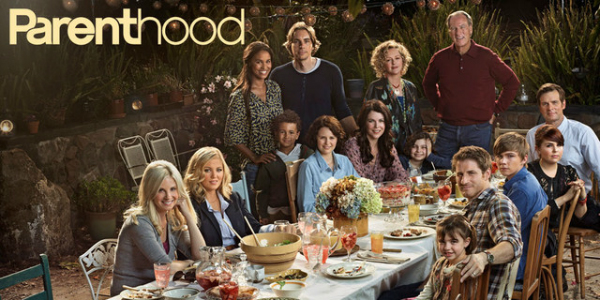
Written by Amanda Rodriguez.
Spoiler Alert
Despite my largely cynical personality, I found myself really enjoying the NBC TV series Parenthood. The show follows the intergenerational lives of the Braverman family living in Berkeley, California. The family is very close-knit, helping each other raise children, weather difficult times, and answer tough questions. Sometimes bordering on goody-goody or saccharine sweetness, the show mostly impresses me with the breadth of important issues addressed and the true-to-life character depth and psychology.
First, let’s address the ways in which Parenthood falls short. The cast is predominantly white. Crosby (Dax Shepard) marries a Black woman, Jasmine (Joy Bryant), and they have two children together, who constitute most of the non-white main characters on the show.
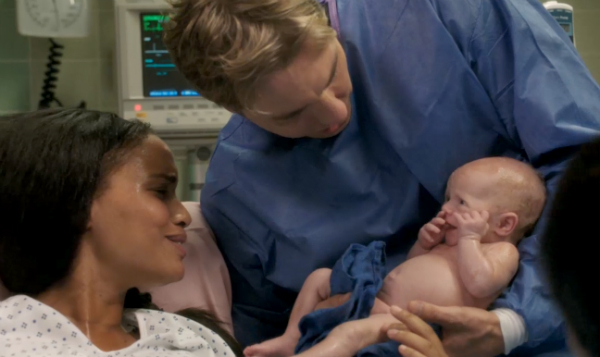
With a cast that big, mainly casting periphery characters of color is a missed opportunity to dig into the intersection of race, culture, class, and family. Though in a limited, somewhat unsatisfactory way, the show does, however, capitalize on Crosby and Jasmine’s life together to delve into issues of interracial family. In a plotline about interracial dating, Adam (Peter Krause) and Christina’s daughter, Haddie, dates a young, Black man, which they forbid under the guise of his age and experience, when it’s clearly more about their discomfort with his class and race. It’s unclear whether or not the show truly acknowledges the racism of Haddie’s parents.
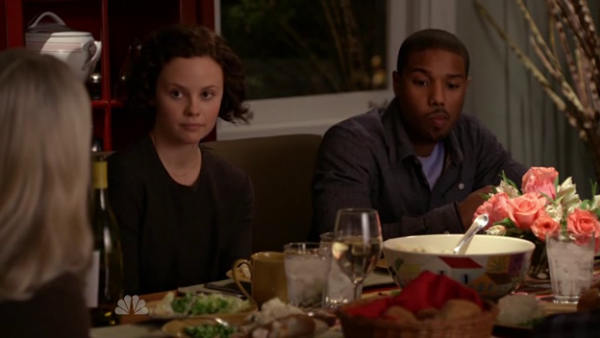
Parenthood also intersects race, class, and adoption themes when Julia and Joel adopt Victor (Xolo Maridueña), an abandoned 10-year-old Latino. Though the way the Braverman clan embraces Julia and Joel’s new son wholeheartedly is full of warmth and humanity, Victor’s representation brings into high relief the lack of class diversity depicted on the show. Though the character Sarah Braverman (Lauren Graham) struggles with money, she has the wealth and home of her parents to fall back on.
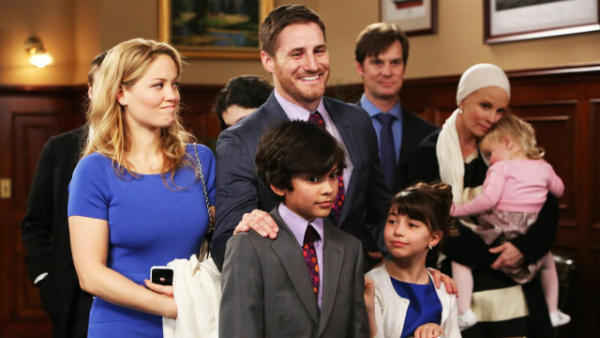
I waited five whole seasons for them to introduce a queer character. We all thought it would be young Drew, the quiet, sensitive younger brother of Amber and son of Sarah. Nope! In the very last episode of the most recent season (Season 5), Parenthood showed a long absent Haddie (Sarah Ramos), home from college, in love with a woman.
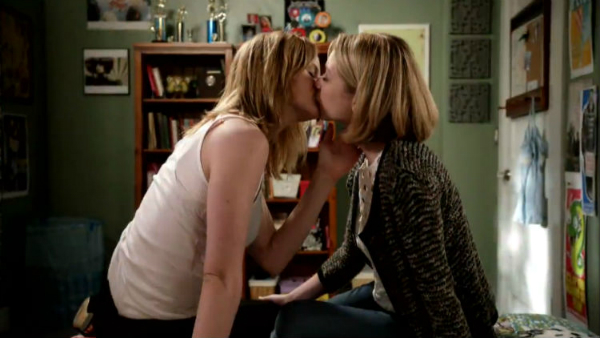
Talk about a token LGBTQ character. She’s not even on the show anymore! It felt like Parenthood wanted to show us it was down with the gays without having to deal with any of the issues, hardships, or questions that come with being a young, queer woman in the US. Haddie also dated Alex, a Black man, so the implication is that she’s boundary-pushing and possibly a LUG. Not cool, Parenthood. Not cool.
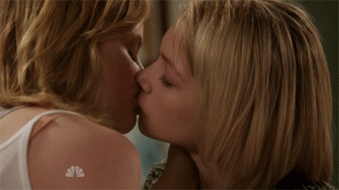
Its shortcomings with regard to race, class, and sexuality mean that Parenthood disappointingly represents a narrow, unrealistic demographic of people. Though that seems like a massive fail, now we get to talk about the ways in which Parenthood succeeds. As I already referenced, the show deals with adoption and infertility with its Victor storyline. Not only that, but tackling the “C word,” the gentle-natured Christina (Monica Potter) is diagnosed with breast cancer. While Christina eventually goes into remission, she struggles with sickness, lack of energy, a desire to see her children through their challenges, loss of self-esteem, the death of close friends who also have cancer, and, most importantly, her own agency, her own ability to choose how she will live, how she will face cancer, and how she will prepare herself and her family for her potential death.
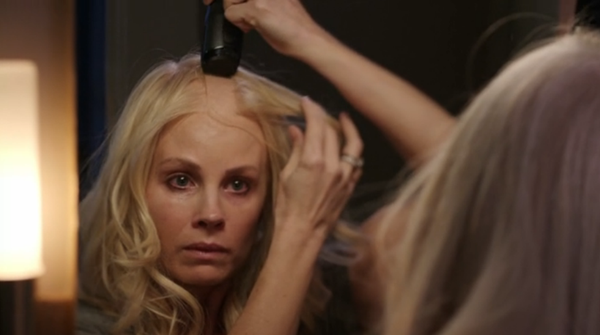
Fear, insecurity, trust, and love are repeatedly called into question when Parenthood deals with infidelity. We see Camille and Zeek secretly separated before they slowly repair their marriage due to an affair Zeek (Craig T. Nelson) had, showing how time, history, and forgiveness are crucial to any long-term relationship. We see Crosby destroy and slowly rebuild his family when he sleeps with Gaby (Minka Kelly), Max’s aide, which highlights how Crosby needed to grow up, accept responsibility for his actions and choices, and become more steadfast in his relationships. We see Adam and Christina weather a kiss Adam’s assistant, Rachel (Alexandra Daddario), plants on him during a rainstorm, showcasing the need for honesty and compassion within a marriage. The series primarily features male partners transgressing against their female partners, but in the most painful and drawn out indiscretion of all, we see Julia kiss another man and lie about it for a time, which leads to a separation and a difficult custody situation.
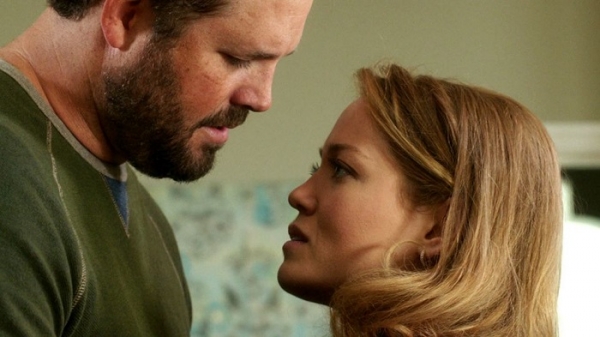
Both characters are sympathetic: Julia (Erika Christensen) is desperate, lonely, and feels invisible, while Joel (Sam Jaeger) feels betrayed and unsupported by his wife in the pursuit of his career. We can also see both of their faults in the situation: Julia is selfish and can’t handle being a stay-at-home mom even though she rashly quit her job, and Joel is rigidly unforgiving and untrusting, refusing to communicate or work on their underlying marital troubles. It’s rare to see an honest, balanced, yet sympathetic portrayal of a drowning relationship due to infidelity.
Parenthood features a teen abortion without judgement. Drew’s (Miles Heizer) girlfriend, Amy (Skyler Day), becomes pregnant. Amy decides to get an abortion, and Drew, in his awkward, teenage way, tries to support her choice and be there for her. Despite his attempts to be a good boyfriend, their youthful relationship disintegrates as a result of the very adult situation they find themselves in. My major complaint is that much of this happens from the perspective of Drew, and we only get glimpses of how Amy feels and how, over a year later when Amy and Drew reconnect, Amy is still troubled by the secret she keeps from her family.
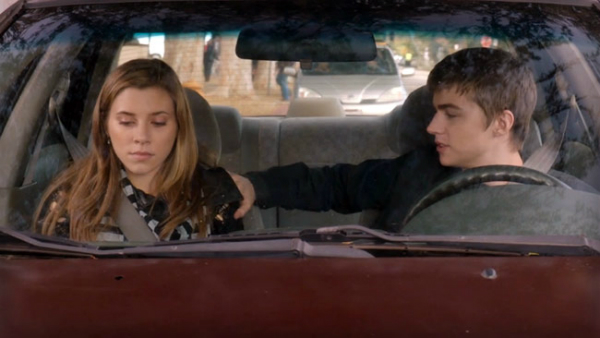
One of Parenthood‘s pet issues is Asperger syndrome and more broadly autism spectrum. In Season 1, Adam and Christina’s son, Max (Max Burkholder) is diagnosed with Asperger’s. Together, the family rally, compassionately supporting Max to give him structure, safety, and a quality education that doesn’t discriminate against him. Later on, the show introduces Hank (Ray Romano), a love interest of Sarah and a mentor for Max, who is pained to discover that he, like Max, is autism spectrum.
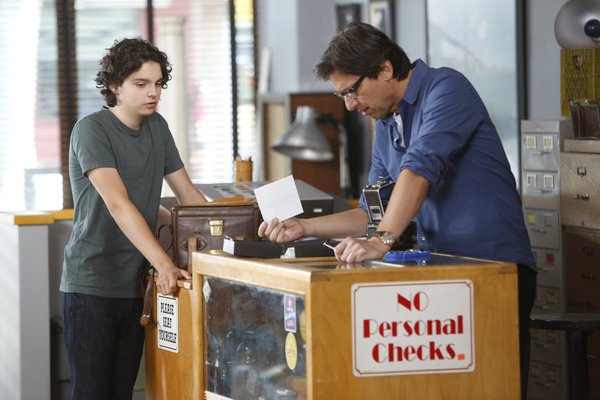
The series strives to show that despite the very real challenges they face, neither Max nor Hank are incapable of normal lives or of being loved. There aren’t a whole lot of representations of autism spectrum individuals that don’t tokenize them as a “character with a disability”–certainly very few make them primary characters on TV, and even fewer cast them as love interests.
I was impressed with the very real, honest depictions of addiction, in particular the plight of the loved ones of addicts. Sarah’s ex-husband, Seth (John Corbett), is an addict and an absentee father. He flits in and out of his children’s lives, promising to change and disappointing them each time. Amber (brilliantly, viscerally performed by Mae Whitman) is so sensitive that when we meet her, she is acting out, a lost teen with little self-worth who’s hardened her heart to her deadbeat dad, while her younger brother, Drew, yearns for his father, constantly forgiving him and eternally holding out hope that he’ll have a real relationship with his father this time. Sarah, herself, never gives up on Seth, and (while I think it’s unrealistic that Seth does, in fact, go to rehab and eventually maintains his recovery since it happens more often than not that people don’t ever recover) the Holt family exemplifies dysfunction and the behavioral patterns of living with an addict.
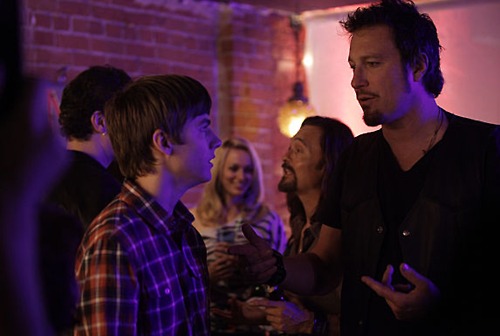
For example, Sarah can’t ever choose the potential partner who has his shit together. She’s always drawn to the one who needs her most. Amber also grows up to embody this same trait when she falls in love with deeply troubled war veteran, Ryan (Matt Lauria). Ryan’s storyline allows Parenthood to delve into PTSD as well as the way in which veterans come home haunted. While I’m disappointed that the show has yet to explore PTSD as a result of sexual violence and/or trauma (especially considering how real that storyline is for so, so many people, especially women), Ryan’s arc and the way in which it intersects with Amber’s is crucial for revealing to us how much she’s internalized that responsibility of caring for someone who isn’t healthy.
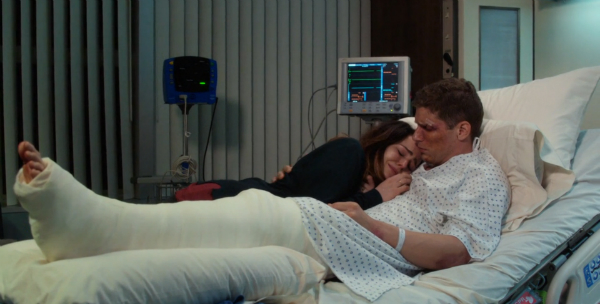
One storyline that I’ve been incredibly pleased to see is that of Camille (Bonnie Bedelia), the matriarch of the Braverman family. Her family takes her for granted and neglects her needs, invalidating her as a human being. They’ve so cast her in the role of “wife” and “mother” that they don’t see her as anything but an extension of themselves. This is clear in the resistance she meets from the entire clan when she wants to explore her love of painting on an extended, solo trip to Italy followed by her family’s baffled disbelief that she wants to sell the house in order to travel more and not be weighed down by that behemoth of a home. I’ve not often seen a story like this that calls out husbands and children for forgetting that their wives and mothers are human beings with separate hopes and desires.
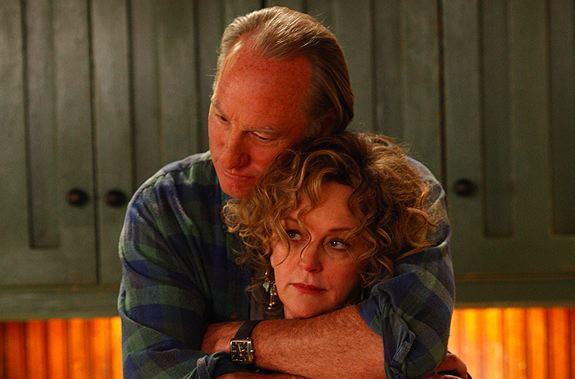
Bottom line, Parenthood is about showing us rounded human beings, triumphantly showing us their strengths and compassionately portraying their weaknesses. The interconnectedness and communication of this family is inspiring, and the series is always true to its characters’ unique psychology, revealing to us that every choice each of them makes is connected in a subtle way. If Season 6 would show us more race, class, and LGBTQ diversity, Parenthood would go from being a really good series to a really great one.
Bitch Flicks writer and editor Amanda Rodriguez is an environmental activist living in Asheville, North Carolina. She holds a BA from Antioch College in Yellow Springs, Ohio and an MFA in fiction writing from Queens University in Charlotte, NC. She writes all about food and drinking games on her blog Booze and Baking. Fun fact: while living in Kyoto, Japan, her house was attacked by monkeys.
When I posted this review to my Facebook page, an autistic self-advocate friend of mine responded. It’s important that his voice is heard here, “Max’s
arc focuses on his parent’s crusade for Max’s normalcy without any
regard of what Max wants, and how Max wants to define himself as a human
being which is a very popular and unfortunate narrative in America in
regards to autism. Autism is constantly portrayed as something that he
is to overcome, not society’s unwritten, unrealistic ideal of ‘normalcy’
which is where autistics struggle. Max’s autism is never seen as an
outright strength, but constantly a hurdle, but not for him as he is
dehumanized, but for his parents’ constant journey in finding humanity
within him. In addition the show now features two autistic characters
who are portrayed by non autistics, an unfortunate growing trend in
Hollywood.”